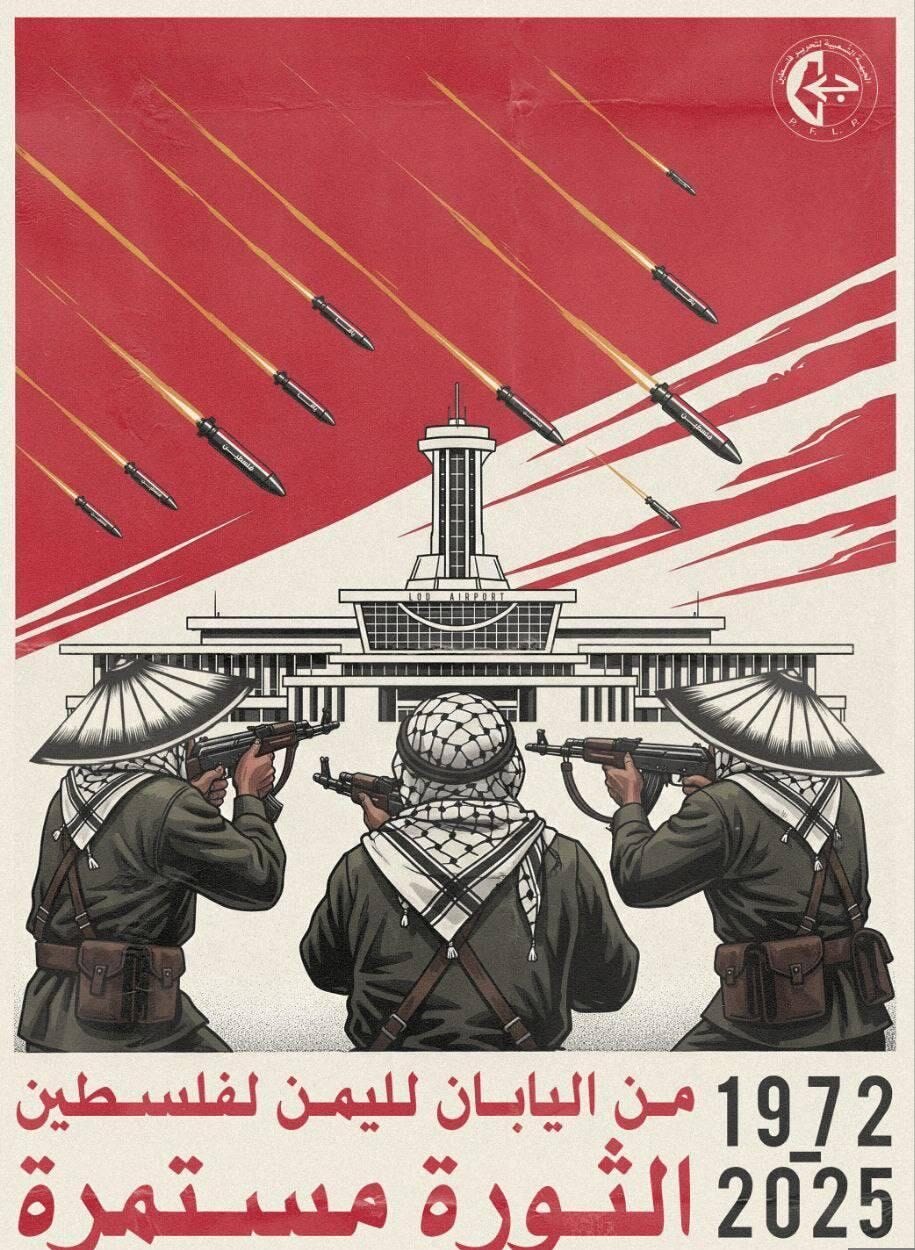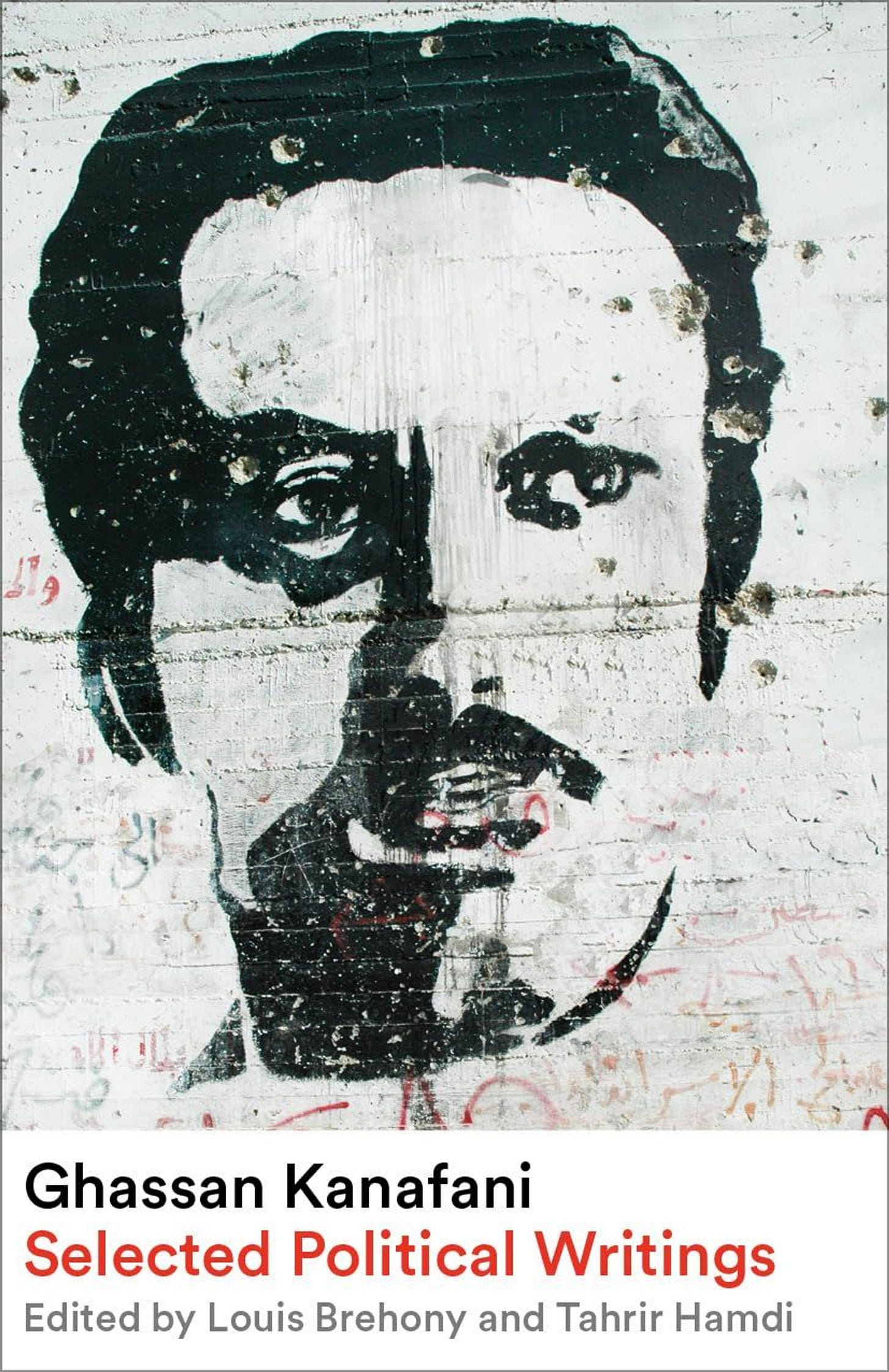Deceased Terrorist Leader Gets Glowing Review in LA Review of Books
Ghassan Kanafani was a former leader in the U.S.-designated PFLP, responsible for numerous terror attacks, yet a review of his work in the LA Review of Books praises him as an influential "activist"
Ghassan Kanafani was a spokesman, founder, and chief propagandist for the Popular Front for the Liberation of Palestine (PFLP), a U.S.-designated terror group. As a key member of the PFLP's political leadership, editor-in-chief of its Al-Hadf magazine, and right-hand man to founder George Habash, Kanafani shaped the group’s ideology through his Marxist essays, which justified terrorism as a form of “armed struggle.”
Now, the Los Angeles Review of Books is praising him as a visionary writer and political thinker. In a full-length review published June 28, Jay Murphy calls Kanafani a pioneering novelist and cultural theorist—though he does not fully examine the role Kanafani played in advocating for violence or his influence in promoting it.
Framing Terrorism as Ideological Complications
The review, titled “Ghassan Kanafani’s Guerrilla Rhetoric, Then and Now,” discusses a new collection of Kanafani’s translated political essays, edited by Louis Brehony and Tahrir Hamdi. Murphy frames Kanafani as a modernist writer in the lineage of Fanon, Guevara, and Aimé Césaire. He presents Kanafani’s embrace of “armed revolution” as one element within a wider intellectual framework—rather than focusing on the violent actions that targeted civilians and caused widespread disruption.
Murphy frames acts of terrorism as ideological complications rather than outright violence. For example, he brings up the group’s civilian airplane hijackings and the 1972 Lod Airport massacre, in which members of the Japanese Red Army, working with the PFLP gunned down 28 civilians, including Americans.
Murphy notes that “tactics like the plane hijackings helped fuel criticisms of the PFLP that it owed more to anarchism than to Marxism,” suggesting that the issue with targeting civilians was seen as a matter of theoretical inconsistency rather than a moral failure. The Lod Airport attack is described as “a dramatic illustration of what Kanafani called ‘looseness of organizational structure,’” with little examination of the nature of the PFLP's defense of the action.

Kanafani’s Role in Terrorism and Recruitment
Kanafani wasn’t just a spokesperson, as the review writes; he was deeply involved in the operational side of the PFLP. He was a close associate of Fusako Shigenobu, the founder of the Japanese Red Army (JRA), which was responsible for the Lod Airport massacre.
In fact, Kanafani worked closely with Shigenobu in Al-Hadf’s offices in 1972, the very year of the massacre. Before the attack, Kanafani was photographed in the Al-Hadf office with JRA terrorists who would later perpetrate the massacre. According to Israel’s Maariv newspaper, Kanafani helped recruit the JRA members, providing them with documents, instructions, and money.

Selective Quoting, Sanitized Legacy
Murphy invokes Edward Said, Fanon, even Lenin, but not once does he quote Kanafani’s own clear embrace of armed struggle as the “highest form of resistance.” Instead, we get a vague claim that “the cultural form of resistance is no less valuable,” as if Kanafani were merely a poet tragically swept up in his era.
The review likens Kanafani to Bassel al-Araj — described by the reviewer as a “theorist-activist” — who was in reality the leader of a PFLP terror cell, and who was killed after opening fire on Israeli soldiers in Ramallah.
The review frames the October 7th massacre as “a response to the 17-year siege of the Gaza Strip, to the escalating attacks on the Al-Aqsa Mosque and Dome of the Rock, and to the stepped-up demolitions of houses and settlements in the West Bank”—essentially endorsing terrorism as a central strategy for the PFLP. While it acknowledges the PFLP’s participation in October 7th, it doesn’t address the fact that Kanafani’s ideology directly supports this form of violence.

When Literary Praise Becomes Political Whitewashing
While it’s common for radical texts to be revisited in academic and literary circles, the review’s failure to critically examine Kanafani’s support for terrorism is concerning. By focusing primarily on his intellectual contributions, the review sidesteps the violent legacy of his political ideology.
In 2025, the decision to celebrate Kanafani as a literary figure raises questions about the role of literature in shaping our understanding of historical events. Rather than a nuanced exploration, this review provides an uncritical portrayal of a figure whose ideas have had far-reaching consequences.




